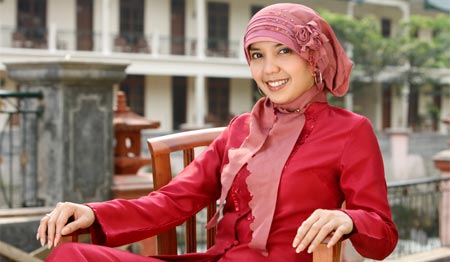Angola bans Islam, shuts down mosques

Claiming that Islam was a sect, the African nation of Angola becomes the first country to ban Islam, Muslims and has shut down the mosques in the country.
World Bulletin / News Desk
The African nation of Angola has become the first country to ban Islam and Muslims, reports On Islam.
Concerning the ban, Angolan President Jose Eduardo dos Santos said Sunday:
“this is the final end of Islamic influence in our country.”
Angola’s ban was first announced when Angolan Minister of Culture, Rosa Cruz e Silva said:
“the process of legalization of Islam has not been approved by the Ministry of Justice and Human rights, their mosques would be closed until further notice." she also said that the ban must take place as Islam was, “contradictory to the customs of Angola culture and it is a sect”.
Angola’s has a population of 16 million of which the majority is Christian, with only 80,000-90,000 Muslims, the majority of whom are migrants from West Africa and families of Lebanese origin, according to the US State Department.
//
 //
//
By popular demand, Angolan authorities have taken pre-emptive action and decided to ban the Muslim religion, which they consider a cult, NOT a religion. They see what Muslims are doing to non-Muslims, especially in Africa, and are taking steps to prevent the same from happening in Angola. In early October 2013, the Muslims living in Luanda in the municipality of Viana Zango were shocked to see the minaret of their mosque dismantled into pieces on the ground without permission. On Thursday 03 October in the morning, the Angolan authorities decided to destroy the mosque Zango located in the urban district of Viana 17 km. The governor of Luanda Bento announced in a radio spot that radical Muslims are not welcome in Angola and the Angolan government is not ready for the legalization of mosques in Angola.
And on Tuesday, November 19, the Minister of Culture, Rosa Cruz e Silva said. “Regarding Islam, the legalization process has not been approved by the Ministry of Justice and Human Rights. Therefore all mosques would be closed until further notice. “ It should be noted that the Angolan government has made closing of all mosques a priority. The only two mosques located in Luanda have already received a warning document signed by the mayor of the municipality of Viana José Moreno.
The provincial governor of Luanda, Bento Bento, said on the airwaves of local radio that “radical Muslims are not welcome in Angola and the Angolan government is not ready for the legalization of mosques.” Minister of Culture, Rosa Cruz e Silva explained that the law on freedom of religion will be reviewed given the current national context , noting that the Government will redouble its efforts to fight relentlessly against religious cults like Islam which are contrary to the customs of Angolan culture.
95% of Angola’s population is Christian. A quarter belongs to Protestant churches founded during the colonial period, including congregational evangelical church.
This decisive action taken by the Angolan head of state is based on a desire to guard against the rise of the Wahhabi ideology that has created havoc, death and destruction in Africa and elsewhere. And as rightly explained Tunisian philosopher Mezri Haddad: “Islamism and Islamophobia feed each other. Worse, long-term Islamism as an ideology destroy Islam as religion. “
According to the International Religious Freedom Report 2008, Islam in Angola is a minority religion with 80,000 – 90,000 adherents, composed largely of migrants from West Africa and families of Lebanese origin. The Muslims comprise between 2.5 to 3 percent of Angola’s overall population of 17 million people, most of them Christians.
in the last decade, but especially during the last few years the Muslim community in Angola has grown appreciably and Islamic activities have become more common in major cities. Mosques have sprung up in a number of places and Qur’anic schools have been built to provide Islamic instructions and teach Arabic language to adherents.
Public attitudes toward Islam have been generally negative. Cultural differences between Angolan and Muslim immigrants have been the basis for negative views toward Islam, as was the perceived link between Islam and illegal immigration. Since the September 11 attacks, there has been a deliberate attempt to link Muslims with terrorism. It has become a matter of routine at Luanda airport for security officers to detain Muslims arriving from Sahelian countries.
On September 1, 2008, a Muslim mob attacked non-Muslims in the community of Andulo. The school-age daughter of a deacon at one of the churches was decapitated. Forty Christians were assaulted or tortured. The mob burned three church buildings. They also went to non-Muslim houses to intimidate them or destroyed items of property. Stones were thrown at the headquarters of a local Christian project, causing some damage. An Angolan Christian leader said that the local police were unable to stop the attack and fled the scene.
In early October 2013, the Muslims living in Luanda in the municipality of Viana Zango were shocked to see the minaret of their mosque dismantled into pieces on the ground without permission. On Thursday 03 October in the morning, the Angolan authorities decided to destroy the mosque Zango located in the urban district of Viana 17 km. The governor of Luanda Bento announced in a radio spot that radical Muslims are not welcome in Angola and the Angolan government is not ready for the legalization of mosques in Angola.
And on Tuesday, November 19, the Minister of Culture, Rosa Cruz e Silva said. “Regarding Islam, the legalization process has not been approved by the Ministry of Justice and Human Rights. Therefore all mosques would be closed until further notice. “ It should be noted that the Angolan government has made closing of all mosques a priority. The only two mosques located in Luanda have already received a warning document signed by the mayor of the municipality of Viana José Moreno.
The provincial governor of Luanda, Bento Bento, said on the airwaves of local radio that “radical Muslims are not welcome in Angola and the Angolan government is not ready for the legalization of mosques.” Minister of Culture, Rosa Cruz e Silva explained that the law on freedom of religion will be reviewed given the current national context , noting that the Government will redouble its efforts to fight relentlessly against religious cults like Islam which are contrary to the customs of Angolan culture.
95% of Angola’s population is Christian. A quarter belongs to Protestant churches founded during the colonial period, including congregational evangelical church.
This decisive action taken by the Angolan head of state is based on a desire to guard against the rise of the Wahhabi ideology that has created havoc, death and destruction in Africa and elsewhere. And as rightly explained Tunisian philosopher Mezri Haddad: “Islamism and Islamophobia feed each other. Worse, long-term Islamism as an ideology destroy Islam as religion. “
According to the International Religious Freedom Report 2008, Islam in Angola is a minority religion with 80,000 – 90,000 adherents, composed largely of migrants from West Africa and families of Lebanese origin. The Muslims comprise between 2.5 to 3 percent of Angola’s overall population of 17 million people, most of them Christians.
And on Tuesday, November 19, the Minister of Culture, Rosa Cruz e Silva said. “Regarding Islam, the legalization process has not been approved by the Ministry of Justice and Human Rights. Therefore all mosques would be closed until further notice. “ It should be noted that the Angolan government has made closing of all mosques a priority. The only two mosques located in Luanda have already received a warning document signed by the mayor of the municipality of Viana José Moreno.
The provincial governor of Luanda, Bento Bento, said on the airwaves of local radio that “radical Muslims are not welcome in Angola and the Angolan government is not ready for the legalization of mosques.” Minister of Culture, Rosa Cruz e Silva explained that the law on freedom of religion will be reviewed given the current national context , noting that the Government will redouble its efforts to fight relentlessly against religious cults like Islam which are contrary to the customs of Angolan culture.
95% of Angola’s population is Christian. A quarter belongs to Protestant churches founded during the colonial period, including congregational evangelical church.
This decisive action taken by the Angolan head of state is based on a desire to guard against the rise of the Wahhabi ideology that has created havoc, death and destruction in Africa and elsewhere. And as rightly explained Tunisian philosopher Mezri Haddad: “Islamism and Islamophobia feed each other. Worse, long-term Islamism as an ideology destroy Islam as religion. “
According to the International Religious Freedom Report 2008, Islam in Angola is a minority religion with 80,000 – 90,000 adherents, composed largely of migrants from West Africa and families of Lebanese origin. The Muslims comprise between 2.5 to 3 percent of Angola’s overall population of 17 million people, most of them Christians.
in the last decade, but especially during the last few years the Muslim community in Angola has grown appreciably and Islamic activities have become more common in major cities. Mosques have sprung up in a number of places and Qur’anic schools have been built to provide Islamic instructions and teach Arabic language to adherents.
Public attitudes toward Islam have been generally negative. Cultural differences between Angolan and Muslim immigrants have been the basis for negative views toward Islam, as was the perceived link between Islam and illegal immigration. Since the September 11 attacks, there has been a deliberate attempt to link Muslims with terrorism. It has become a matter of routine at Luanda airport for security officers to detain Muslims arriving from Sahelian countries.
On September 1, 2008, a Muslim mob attacked non-Muslims in the community of Andulo. The school-age daughter of a deacon at one of the churches was decapitated. Forty Christians were assaulted or tortured. The mob burned three church buildings. They also went to non-Muslim houses to intimidate them or destroyed items of property. Stones were thrown at the headquarters of a local Christian project, causing some damage. An Angolan Christian leader said that the local police were unable to stop the attack and fled the scene.
In early October 2013, the Muslims living in Luanda in the municipality of Viana Zango were shocked to see the minaret of their mosque dismantled into pieces on the ground without permission. On Thursday 03 October in the morning, the Angolan authorities decided to destroy the mosque Zango located in the urban district of Viana 17 km. The governor of Luanda Bento announced in a radio spot that radical Muslims are not welcome in Angola and the Angolan government is not ready for the legalization of mosques in Angola.
And on Tuesday, November 19, the Minister of Culture, Rosa Cruz e Silva said. “Regarding Islam, the legalization process has not been approved by the Ministry of Justice and Human Rights. Therefore all mosques would be closed until further notice. “ It should be noted that the Angolan government has made closing of all mosques a priority. The only two mosques located in Luanda have already received a warning document signed by the mayor of the municipality of Viana José Moreno.
The provincial governor of Luanda, Bento Bento, said on the airwaves of local radio that “radical Muslims are not welcome in Angola and the Angolan government is not ready for the legalization of mosques.” Minister of Culture, Rosa Cruz e Silva explained that the law on freedom of religion will be reviewed given the current national context , noting that the Government will redouble its efforts to fight relentlessly against religious cults like Islam which are contrary to the customs of Angolan culture.
95% of Angola’s population is Christian. A quarter belongs to Protestant churches founded during the colonial period, including congregational evangelical church.
This decisive action taken by the Angolan head of state is based on a desire to guard against the rise of the Wahhabi ideology that has created havoc, death and destruction in Africa and elsewhere. And as rightly explained Tunisian philosopher Mezri Haddad: “Islamism and Islamophobia feed each other. Worse, long-term Islamism as an ideology destroy Islam as religion. “
According to the International Religious Freedom Report 2008, Islam in Angola is a minority religion with 80,000 – 90,000 adherents, composed largely of migrants from West Africa and families of Lebanese origin. The Muslims comprise between 2.5 to 3 percent of Angola’s overall population of 17 million people, most of them Christians.
 //
//| Angola bans Islam as mosques closed, demolished |
According to a report published by the Cairo Post : http://thecairopost.youm7.com over 60 mosques have been demolished or closed. Below is text of the report as posted on the webiste.
CAIRO and LISBON: Over 60 mosques have been closed or demolished in predominantly Christian Angola over the last two months, in a government initiative ostensibly targeting mosques built without authorization. International media reports since Sunday claim Angola has “banned” Islam, and the country’s Muslim minority feels it is being targeted.
The Muslim community in Angola has yet to receive official recognition from the government, as many are believed to be illegal immigrants and consequently do not contribute to the 100,000 members required by the government to constitute a practicing religion.

A man stands infront of a demolished mosque in Rocha Pinto city of Luanda-courtesy of coque mukuta
Official documents dated Sept. 26 – of which The Cairo Post has obtained copies – ordered the demolition of a mosque in Viana’s Zango-I neighborhood, in Luanda province. Signed by Viana’s municipal administration, the document notifies the head of the mosque that they had 72 hours to carry out the “voluntary demolition” of the mosque and remove any leftover debris from the site. According to the demolition order, the mosque was “built without express authorization from the local government of Viana.”
Voice of America reporter Coque Mukuta has been in direct contact with Muslim communities across Angola, and confirmed to The Cairo Post that over 60 mosques have been closed or demolished. While The Cairo Post has been unable to obtain numbers on how many mosques were demolished versus closed, Mukuta said mosques in several locations were affected, including Luanda and Moxico. A few mosques in Benguela and Luanda are still operational.
According to the Association of Religion Data Archives, Muslims make up 1.09 percent of Angola’s approximately 13 million population. The Muslims residing in Angola are mostly migrants from West Africa. However, Muslim sources quoted in the 2012 U.S. government’s International Religious Freedom Report suggest there may be as many as 500,000 in Angola. The number is difficult to confirm as many of the country’s Muslims are said to have unclear immigration status, according to the report.
While the Angolan government is citing legal technicalities for the closures and demolitions, the Angolan Constitution guarantees freedom of conscience, worship and religion as inviolable rights. It declares that the secular state of Angola “shall protect [...] places and objects of worship” (article 10).
However, religious groups are required to apply for legal status with the Ministries of Justice and Culture to secure, among other benefits, the right to build schools and places of worship. One requirement to qualify for legal status is a minimum membership of 100,000 adult adherents. The Central Mosque of Luanda, which represents Angola’s Muslim community, has reportedly come close to meeting the membership requirement, but has not yet obtained legal status. The 2008 International Religious Freedom Report explained that the “Muslim community in particular is affected by this numerical limitation, as many of its adherents are believed to be illegal immigrants and therefore do not count towards the legal minimum.”
Obtaining the minimum membership requirement is one obstacle impeding Angola’s Muslim community from enjoying freedom of religion and worship, according to a 2012 report by UN Special Rapporteur on Freedom of Religion or Belief Heiner Bielefeldt.
“Our country has a constitution that guarantees freedom of worship and of religion,” David Já, head of the Islamic Community of Angola (COIA), told Angolan newspaper OPAIS. “If this is in our legal system, I see no reason for illegally closing the mosques.”
The local Muslim community believes it is intentionally being targeted by the wave of closures and “voluntary” demolitions, community members told Mukuta. While the government cites legal technicalities, the Muslim community believes the real reason their houses of worship are being targeted is because Angolan society – and the government – believes they are “terrorists,” they said.
“The terrorist argument is raised by the Muslims [themselves]. But it is a known fact that the Angolan government is afraid of radicalism,” Mukuta told The Cairo Post. “People here tell me that I am defending them in vain, as they are suicidal.”
The Guardian of UK also published news on series of violence and intimidation against women who wear the veil, the report:
Angola has been accused of "banning" Islam after shutting down most of the country's mosques amid reports of violence and intimidation against women who wear the veil.
The Islamic Community of Angola (ICA) claims that eight mosques have been destroyed in the past two years and anyone who practises Islam risks being found guilty of disobeying Angola's penal code.

Palestinians burn Angola's flag in a protest amid reports that the country has banned Islam and destroyed mosques. Photograph: APA/REX
Human rights activists have condemned the wide-ranging crackdown. "From what I have heard, Angola is the first country in the world that has decided to ban Islam," said Elias Isaac, country director of the Open Society Initiative of Southern Africa (Osisa). "This is a crazy madness. The government is intolerant of any difference."
Officials in the largely Catholic southern African nation insist that worldwide media reports of a "ban" on Islam are exaggerated and no places of worship are being targeted.
The UK has just named Angola as one of its five "high-level prosperity partners" in Africa and the two countries have a burgeoning trade relationship. The Angolan president, José Eduardo dos Santos, Africa's second-longest serving head of state at 34 years, has long been accused of corruption and human rights abuses.
Religious organisations are required to apply for legal recognition in Angola, which currently sanctions 83, all of them Christian. Last month the justice ministry rejected the applications of 194 organisations, including one from the Islamic community.
Under Angolan law, a religious group needs more than 100,000 members and to be present in 12 of the 18 provinces to gain legal status, giving them the right to construct schools and places of worship. There are only an estimated 90,000 Muslims among Angola's population of about 18 million.
David Já, president of the Islamic Community of Angola (ICA), said on Thursday: "We can say that Islam has been banned in Angola. You need 100,000 to be recognised as a religion or officially you cannot pray."
There are 78 mosques in the country, according to the ICA, and all have been closed except those in the capital, Luanda, because they are technically unlicensed. "The mosques in Luanda were supposed to be closed yesterday but because of an international furore about reports that Angola had banned Islam, the government decided not to," Já said.
"So, at the moment, mosques in Luanda are open and people are going for prayers."
Já said the government began shutting mosques in 2010, including one that was burned down in Huambo province, "a day after authorities had warned us that we should have not built the mosque where we had and that it had to be built somewhere else. The government justified by saying that it was an invasion of Angolan culture and a threat to Christian values."
Another mosque was destroyed in Luanda earlier this month, Já said, and 120 copies of the Koran burned.
Muslims have been instructed to dismantle mosques themselves, he added. "They usually issue a legal request for us to destroy the building and give us 73 hours to do so. Failure to do so results in government authorities doing it themselves."
Women who wear the traditional veil are also being targeted, Já said. "As things stand, most Muslim women are afraid to wear the veil. A woman was assaulted in hospital in Luanda for wearing a veil, and on another occasion, a young Muslim lady was beaten up and told to leave the country because she was wearing a veil.
"Most recently, young girls were prohibited from wearing the veil in Catholic schools and, when we went there to confront the nuns, they simply said they couldn't allow it. Although there is not an explicit written law prohibiting the use of veil in Angola, government has prohibited the practice of the faith and women are afraid to express their faith in that sense."
The ICA's complaints were supported by Rafael Marques de Morais, a political activist and leading investigative journalist in Angola. "I've seen an order that says Muslims must destroy the mosques themselves and clear away the debris, or they will be charged for the cost of the destruction."
He suggested the government was seeking to find a convenient diversion from growing public hostility towards Chinese and Portuguese workers in Angola. "The government need to deflect attention. They are trying to find a scapegoat for economic pressures and saying Islam is not common to Angolan values and culture.
"They believe a blanket law against Islam will get the sympathy of both Angolans and those in the international community who equate Islam with terrorism."
Asked about the potential for Muslims to protest, Marques replied: "If the Muslims try to show any anger, they will be deported the following day."
But the Angolan government denies any attempt to ban Islam. "There is no war in Angola against Islam or any other religion," Manuel Fernando, director of religious affairs at the culture ministry, . "There is no official position that targets the destruction or closure of places of worship, whichever they are."
A statement from the Angolan embassy in the US concurred: "The republic of Angola ... it's a country that does not interfere in religion. We have a lot of religions there. It is freedom of religion. We have Catholic, Protestants, Baptists, Muslims and evangelical people.
|
//
//












